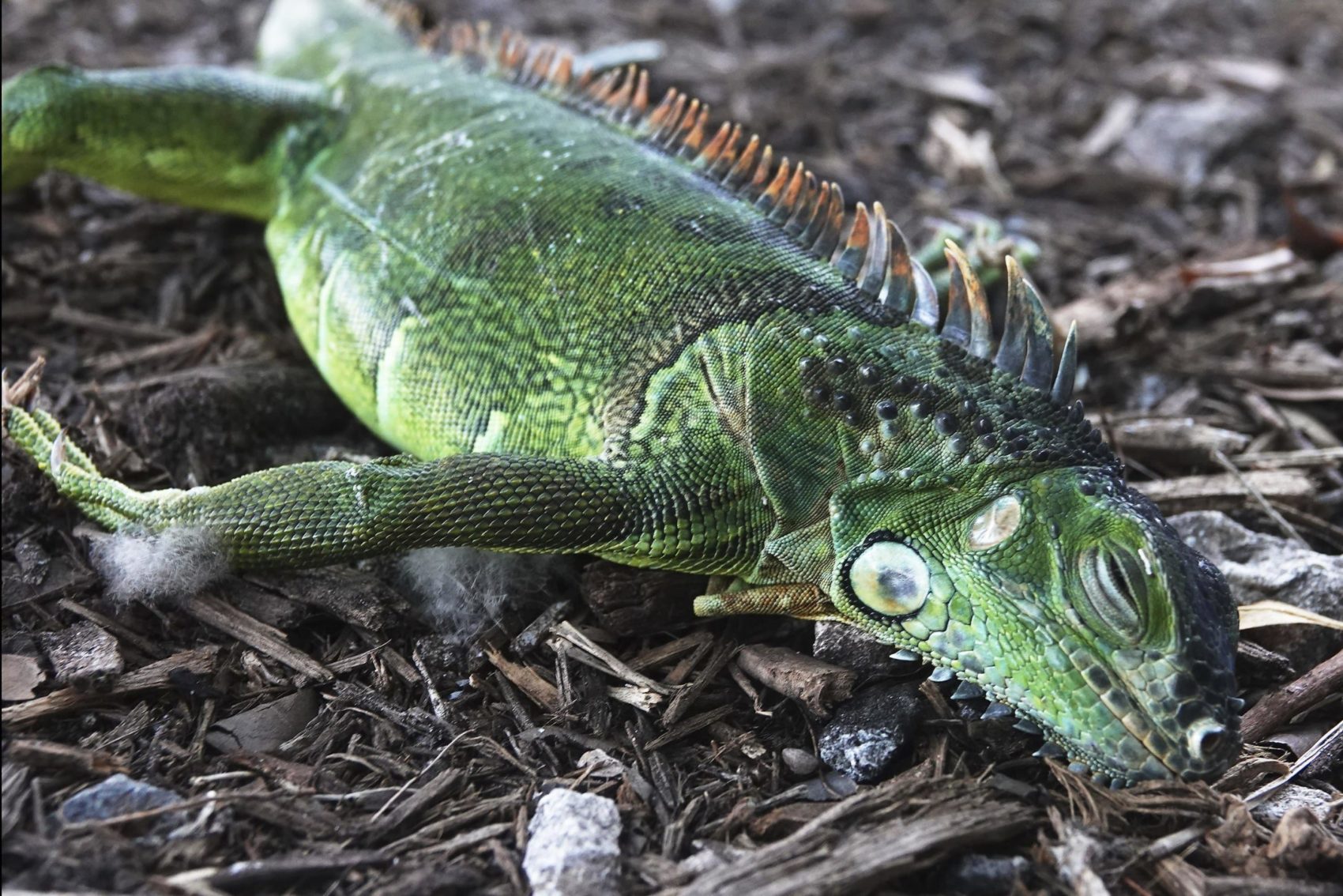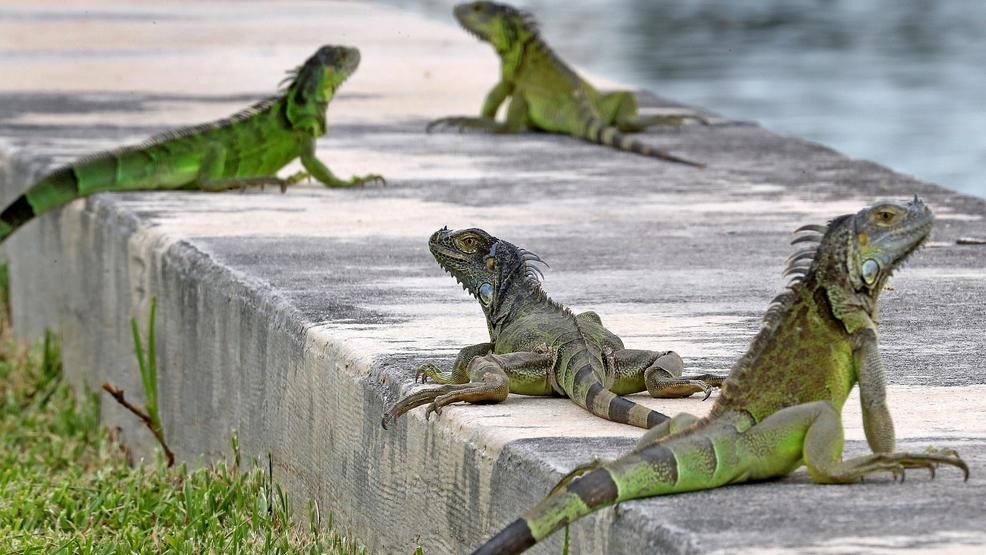
The National Weather Service is warning Florida residents of frozen iguanas dropping from trees as a result of the recent cold temperatures. Temperatures have been dropping into the 30s with high winds associated, which is unusual for the region. As a result, the streets and sidewalks of Florida have been rapidly littered with frozen iguanas.
Iguanas are coldblooded reptiles that are native to Central America and tropical regions in South America. An invasive species in Florida, Iguanas are non-threatening to humans but cause extensive damage to seawalls, sidewalks, and landscapes. Male iguanas can grow up to 5 feet long and weigh close to 20 pounds. Between the warm climate and access to water, Florida has become a breeding ground for the reptiles with females hatching nearly 80 eggs per year.

When faced with cold temperatures, iguanas become stunned and immobile. Losing the ability to hold onto the tree, they fall to the ground. While it may appear as though they are dead, most are actually in a state of shock. Once the temperatures begin to rise and the sun hits them, they become rejuvenated. The people of Florida have become accustomed to this phenomenon and receive warnings in order to watch for potential “iguana rain”.
With most of the iguanas coming back to life after being hit with cold temperatures, not all of them survive. This presents quite the cleanup process for the towns experiencing this. While many people choose to dispose of the bodies properly, some are seizing the opportunity to sell iguana meat. However, with temperatures rising back up into the 60s, Florida will no longer need to watch or take cover when walking under trees.